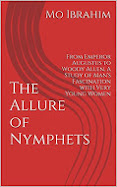
Blood Oranges

The blood orange is a variety of orange (Citrus sinensis) with crimson, blood-colored flesh. The fruit is smaller than an average orange; its skin is usually pitted, but can be smooth. The juice is sweet but somewhat bitter and less acidic than regular table oranges. The distinctive dark flesh color is due to the presence of anthocyanin, a pigment common to many flowers and fruit, but uncommon in citrus fruits. Sometimes there is dark coloring on the exterior of the rind as well, depending on the variety of blood orange. The degree of coloration depends on to light, temperature and variety. (Wikipedia)
U.S. Seasons:
- Texas Crop - December to March
- California Crop - November to May (GourmetSleuth)
Clementine's are the tiniest of the mandarins. Imported from Spain, Morocco, and other parts of North Africa, clementines are a cross between a sweet orange and a Chinese mandarin. They are small, very sweet, and usually seedless. Most people think of clementines as small tangerines, but they're a different variety entirely, with a distinctive taste. The Clementine is an excellent eating orange. Its small size and lack of seeds make it particularly popular with kids. Clementines have been available in Europe for many years, but the market for them in the United States was made only a few years ago, when a devastating freeze in Florida made domestic oranges scarce and expensive. A lot of oranges, including clementines, were imported from Europe, and clementines started to catch on. Over the past few years they've become increasingly popular, and as the demand has gone up, so has the price.
Season: Late October to February (Produce Pete)
Ian McShane in "The Homecoming"

Ian McShane is known to TV audiences for his portrayal of profanity-spewing villain Al Swearingen in HBO's TV series 'Deadwood'. "The Homecoming" marks the 40th anniversary for both Pinter's play and Ian McShane. McShane has only appeared once on Broadway, and that was almost 40 years ago when he played Marat in a production of 'The Promise' by Aleksei Arbuzov. (NY Theatre Guide)
Ian McShane, famously antiheroic as the saloon owner in HBO's "Deadwood," has more dashing, crumbling good looks than are usually seen in Max, the once-powerful lowlife patriarch. Thus, along with the scary cane and even-more fearsome mouth, the actor with the deep sooty voice makes us believe Max's boasts about his former charisma."
THE HOMECOMING. By Harold Pinter, directed by Daniel Sullivan. Cort Theatre, 138 W. 48th St., through April 13. Tickets: $26.50-98.50. Call 212-239-6200.
Chip Kidd "The Learners" Cover
"the red part there is the dust jacket. The black and white illustration is actually the cover itself. And the circle of 'The Book After The Cheese Monkeys' corresponds with the rest of the illustration. It's really quite elegant." (The Book Design Review)
While Chip Kidd may be best known for his book covers — his designs have graced titles by David Sedaris, Michael Crichton and hundreds of other authors — occasionally he likes to work between them.
The Learners serves as a sequel of sorts to Kidd's first novel, 2001's The Cheese Monkeys. Set in the early 1960s, The Learners follows a young graphic designer who decides to answer the first newspaper ad he creates. What follows is "a murder mystery about a killing that may never have taken place," Kidd says.
Not only does Kidd draw on his graphic-design background for the narrative, but he also incorporates it into the text. Typography plays a crucial role in The Learners; font size and design pull readers into the action. (USA Today)
It is one of Paris's most celebrated monuments, a neoclassical masterpiece that has cast its shadow across the city for more than two centuries.
For a year from September 2005, under the nose of the Panthéon's unsuspecting security officials, a group of intrepid "illegal restorers" [Four members of an underground "cultural guerrilla" movement known as the Untergunther, whose purpose is to restore France's cultural heritage] set up a secret workshop and lounge in a cavity under the building's famous dome. Under the supervision of group member Jean-Baptiste Viot, a professional clockmaker, they pieced apart and repaired the antique clock that had been left to rust in the building since the 1960s. Only when their clandestine revamp of the elaborate timepiece had been completed did they reveal themselves.
Oscar Peterson
1925 - 2007
1925 - 2007

Oscar Emmanuel Peterson, CC, CQ, O.Ont. (15 August 1925 – 23 December 2007) was a Canadian jazz pianist and composer. He was called the "Maharaja of the keyboard" by Duke Ellington, and was therefore a member of jazz royalty. He released over 200 recordings, won seven Grammy Awards, and received other numerous awards and honours over the course of his career. He is considered to have been one of the greatest pianists of all time, who played thousands of live concerts to audiences worldwide in a career lasting more than 65 years. (Wikipedia)

The sculpture was installed by the notorious streetartist Brad Downey on the Lower East Side
on E Houston & Suffolk St. It was removed by the DOT. (Gothamist)
(Pictures courtesy of Yelp)
"There Will Be Blood"
Plot Outline: A story about family, greed, religion, and oil, centered around a turn-of-the-century Texas prospector (Daniel Day-Lewis) in the early days of the business. (IMDb)
"The best movie performance so far this century? No contest. There's Daniel Day-Lewis' awe-inspiring turn as a greedy oilman in There Will Be Blood, and there is everyone else."
(Lou Lumenick\New York Post)
TRAILER





No comments:
Post a Comment